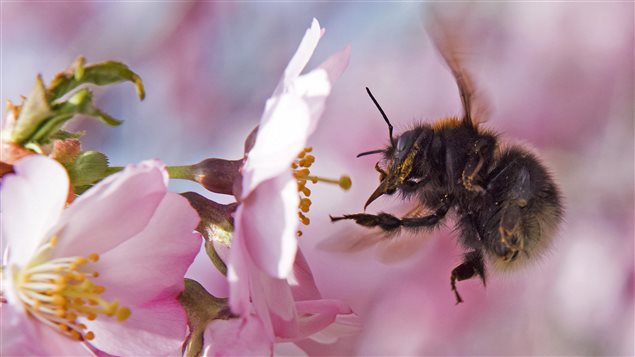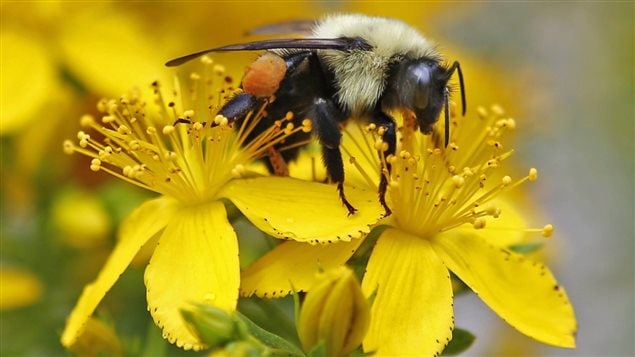Scientists say one-third of the food we put in our mouths depends on the pollination of crops by wild bees and those bees are in decline around the world. Declines have been linked to pesticides in the neonicotinoid family as well as the loss of habitat, parasites, disease and climate change.

Neonic affected egg-laying
A new study found that one of these commonly-used pesticides, thiamethoxam, has a negative impact on the queens of four species of bumblebee. “We found that in all four of these species there was an impact on the ability of the queens to lay eggs,” says Nigel Raine, a professor of at the University of Guelph and an expert on pollinators who took part in the study.
Listen“The eggs that they produced were smaller which probably means that they were going to be laying them later and that’s going to have an impact for colonies down the line. It’s going to mean that they start later and probably have an impact on their ability to develop over time.
A reduction in feeding noted
“We also found in two of the four species there was a reduction in the nectar-feeding rate of those queens, which again,…will have important consequences for their ability to go out and forage, to collect nectar and pollen from flowers but also to do all of the things they normally have to do in setting up a colony.”
The province of Ontario has already limited the use of some neonicotinoids and the province of Quebec will likely do so soon. Raine says governments need to carefully balance the farmers’ need to control pests against the impacts of pesticides on pollinators.

Seeds are more problematic
He says seeds coated with pesticides are more of a problem than spraying because the pesticide will persist when the seeds germinate. It remains in the flowers exposing the bees which come to forage.
Raine says sprays can be used in more targeted ways to avoid exposing pollinators, although there can be drift and accidental exposure.
Other help needed
Minimizing the use of pesticides is not enough to save bumblebees, says Raine. Huge agricultural fields leave bees with only a limited time to forage. He suggests other plants be grown nearby to sustain them the rest of the time and that habitat be protected for nesting. He notes the bumblebees are not just important for pollinating crops for human consumption, they are also pollinate wild plants that support ecosystems.
The study was published in in the journal Proceedings of the Royal Society B.







For reasons beyond our control, and for an undetermined period of time, our comment section is now closed. However, our social networks remain open to your contributions.